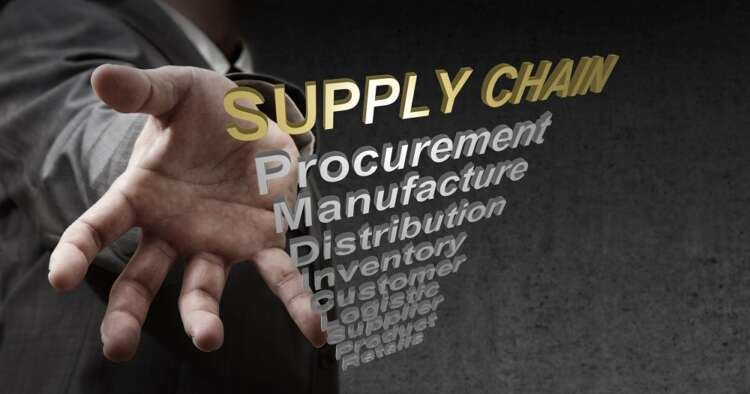Will EU Supply Chain Issues Encourage Growth in the UK Economy?


By Steve Ellis, MD at FPE Seals specialists of hydraulic cylinder parts.
Brexit and the pandemic have been disruptive for supply chains. Between new regulations, tariffs, and isolation and testing policies, importing and exporting products has been difficult. However, where disruption occurs, so too does the opportunity to seize new shares of growing and changing markets.
By discussing how Brexit has affected trade between the EU and the UK, we can explore how the UK economy may experience local economic growth and how businesses should reinforce their operations to succeed in this new era of regulated trade.
Trading with the EU has played a significant role in British business as the number one partner for trading goods, accounting for 52 per cent of imports and 43 per cent of exports in 2019.
In 2019, £374 billion worth of goods were imported to the UK from the EU, while £294 billion worth of goods were exported.
These trading ties are significant for sectors including food and drink, chemical, and automotive industries, supplying commodities and equipment for supply chains in the UK.
However, the Brexit trade agreement has been disruptive, with imports and exports experiencing a sharp slump after the UK officially left the EU. While it has recovered, there are still some teething issues as the UK attempts to restore European trade to its pre-Brexit high. More checks, paperwork, and higher costs are just some of the problems that businesses are facing.
In May 2021, the value of imports from the EU matched levels of January 2016, lower than its peak in 2019. However, the value of exports remains relatively high, exceeding most figures as far back as 2007. The trade deficit is also at its lowest difference since 2012. The impact of Brexit has been sharp, but data shows that while the recovery is turbulent, it is a recovery nonetheless.
The UK is in a trade deficit with the EU, meaning that more goods are imported into the UK than are exported. This is not inherently bad or good. In fact, in some situations, a trade deficit can allow economies to specialise in specific sectors and achieve significant growth.
However, as imports from the EU remain below its 2019 peak, it could present an opportunity for short-term economic growth in the UK. Businesses may have to temporarily rely on domestic supply chains to sustain their current models while wider international trade deals are crafted. As businesses look to their own backyards, could it boost local communities through employment and other investment?
UK businesses that supply transport equipment, chemicals, and non-electrical machinery could find domestic investment from investors struggling to attain imports from our European neighbours, where these commodity groups equate to 17, 15, and 14 per cent of import from the EU respectively.
One UK business, FPE Seals, is a manufacturer and distributor of pneumatic seals and hydraulic cylinder parts. Steve Eillis, Managing Director at FPE Seals says that while Brexit has been disruptive, a clear supply channel strategy along with the specialist focus of their products has allowed them to remain competitive across UK and European markets. He went on to say, “It’s key for businesses to focus on their strengths and what makes their products or services unique. Despite the disruption of Brexit, we’ve been able to embrace a growing UK market while maintaining relationships abroad that limit the impact on our supply chains. Ultimately, by recognising the strengths of our partners and clients, we’ve been able to tailor our processes to a market and supply chain that is constantly changing.”
Preparedness is key. While European opportunities may be reduced, businesses should seek out local opportunities.
The environment of uncertainty is unsustainable, as the UK and the EU move beyond the pandemic, businesses will be back to analysing their Brexit strategy. For UK businesses to grow and to benefit the economy, there are several factors that should be considered and operations that can be more efficiently organised. Businesses that are progressing beyond Brexit and the pandemic must:
Investing in local supply chains or encouraging the establishment of international suppliers on your doorstep can help alleviate the uncertainty of European trade. Existing contracts should also be modified to account for risk in both the near and distant future.
As trade changes, so will the demand for your products. Those exporting to the EU may recognise that they cannot compete with internal-bloc businesses, but those with popular imported products may find more domestic success. Flexibility is also vital, where volatility may be a common feature of UK and European markets than previously known.
Brexit means that UK businesses will have to stress their capabilities and advantages to new competition within the UK, and to their existing EU customers that may be discouraged by new tariffs, regulations, and checks. Whilst in the trade deficit, businesses should concentrate their efforts to reinforce their specialist skills and products that can also be procured through their business and trade. Only then can supply chains encourage economic growth.

Steve Ellis, MD at FPE Seals specialists of hydraulic cylinder parts.
Sources
https://commonslibrary.parliament.uk/research-briefings/cbp-7851/
https://www.statista.com/statistics/284750/united-kingdom-uk-total-eu-trade-in-goods-by-trade-value/
Explore more articles in the Business category











